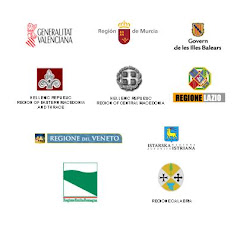Dr. Millán Millán, director of the Center for Environmental Studies in the Mediterranean (CEAM), participated today in the 14th Summer School of the Assembly of European Regions, hold in Valencia this week.
During his speech, Mr. Millán lectured on the historical trend of changes in rainfall cycles in the Mediterranean basin, affecting the rains all over Europe. Specifically, the scientific pointed out that as early as the year 1974 the European Commission started its research on atmospheric pollution, which led to findings on the lack of summer storms in the Mediterranean.
"European Commission DG Environment discovered that torrential rains in the Mediterranean were increasing at the same time that Atlantic rains were decreasing", stated Dr. Millán.
According to this expert, "the Mediterranean has a unique atmospheric circulation system in which water vapor goes up to the mountain and comes back to the sea without rainfalls". The importance of this model justifies that "the European Commission has earmarked 200 million euro to study this phenomenon".
Dr. Millán is, besides the director of CEAM since its creation in 1990, author of 96 scientific publications and other works. He is member of several international and European scientific committees and has received an honorary doctorate from Universidad Miguel Hernández from Elche (Alicante-Spain).
The CEAM has worked with Wateregio in drafting the project proposal 'Waterstar' for the last Interreg MED call.











